The importance of growing contracts
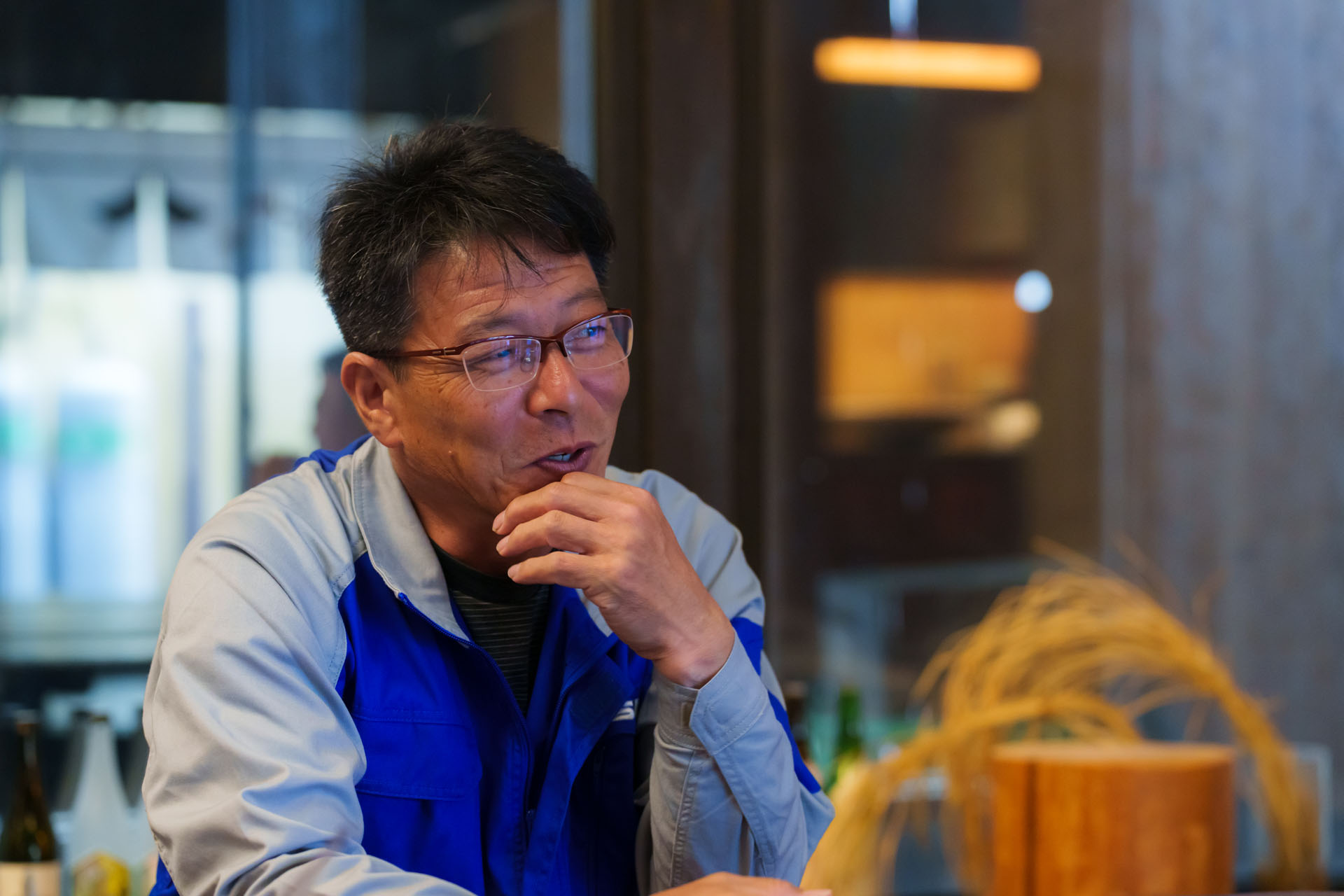
Akinori Ide, fifth generation descendent of a farming family, looks after about 8 hectares of rice fields in Saku City. Another branch of the Ide family have run Kitsukura Sake Brewing for generations. Tamio Ide, the 18th generation brewery owner, decided 30 years ago that they should add value by making sake from locally grown rice, so he founded the Minami Saku Sake Rice Group as a means of asking farmers to grow sake rice through the local Japan Agriculture cooperative. So Kurosawa Sake Brewery, Sakunohana Sake Brewery and Kitsukura now entrust their rice supply to Akinori, who leads the sake rice group.
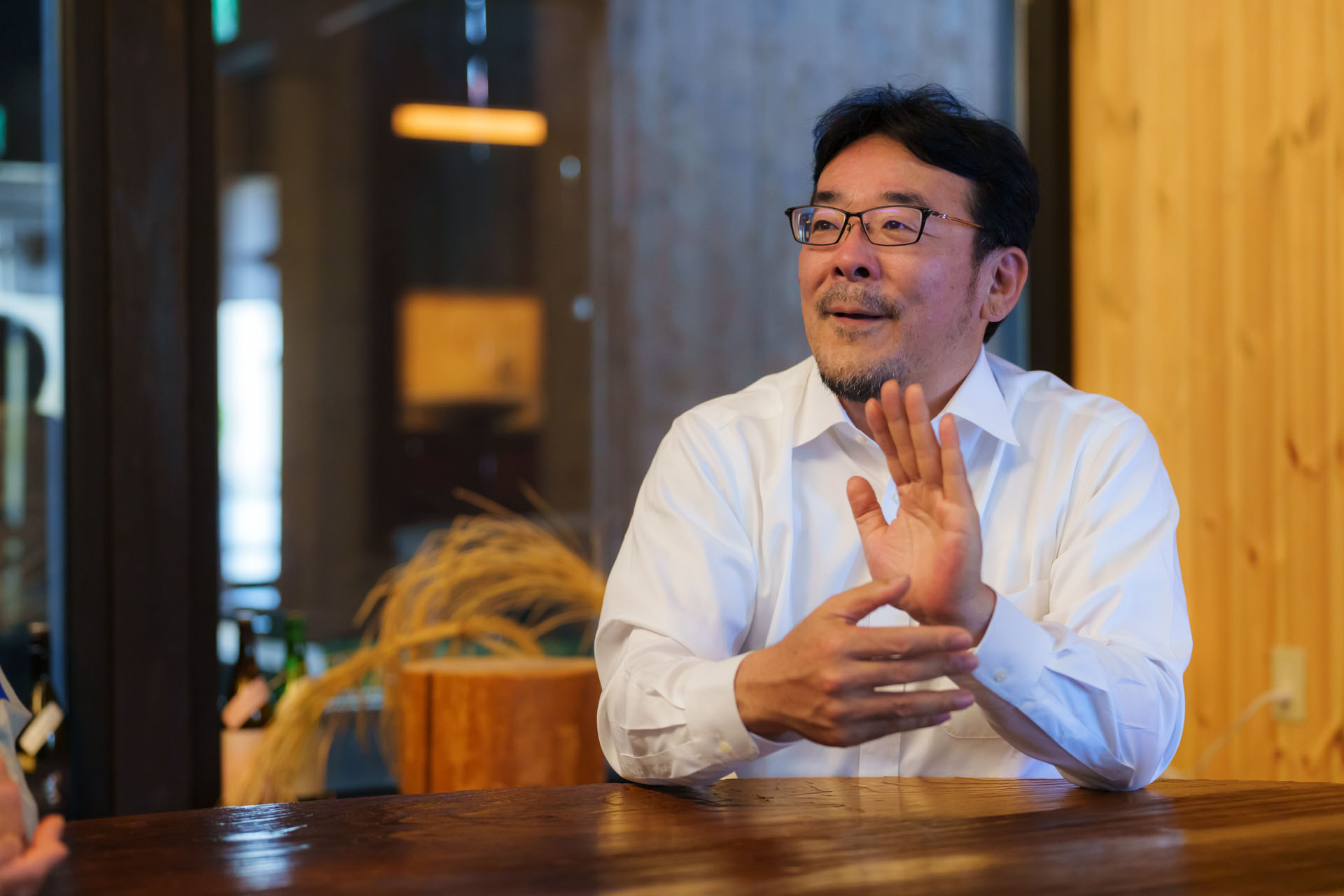
Working with the Nagano Prefecture Agricultural Experiment Station, the group continuously analyzes both the soil and the rice and shares the results with its members. Their work gives brewers and farmers alike the information they need to understand and debate how to rice optimal for making sake. Kitsukura Sake Brewing has long relied on Akinori to grow the sake rice they need, including Kinmon Nishiki, Hitogokochi and Miyama Nishiki. But despite their careful planning, they and other farmers and breweries ran into problems in 2022 when there wasn’t enough Hitogokochi or Miyamanishiki rice to go around. So Kitsukura asked Akinori to increase the area under cultivation from the following year to ensure they would have enough local Miyama Nishiki. He was able to respond quickly thanks to the many skilled professionals working in the large farming area that surrounds them.
Kitsukura revived their 200-year old tradition of Shinshu Kenjosai, a Shinto ceremony where freshly-pressed sake is offered to the gods in thanks for the bountiful rice harvest and successful brewing. Akinori takes part as a representative of the local community, and always looks forward to it. He always tastes the sake made from the rice that he grew, seeking out the nuances of flavor that only he, the grower, can detect.
Aiming to become a prime location for sake tourism
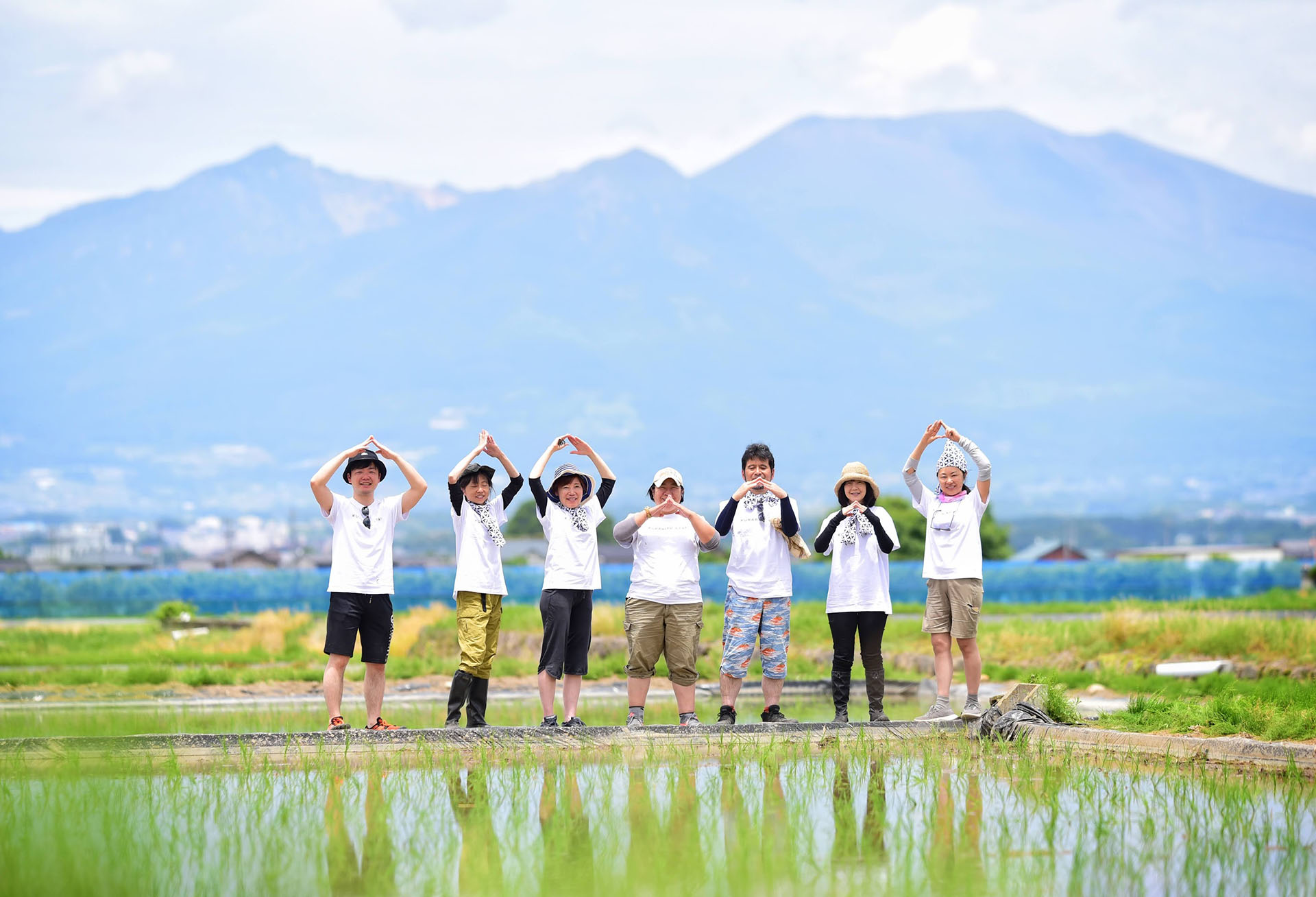
Kitsukura Sake Brewing has thrown its doors open for the world to come and experience sake brewing, and if you come at the right time it also invites KURABITO STAY guests to join them in growing sake rice. KURABITO STAY’s popular Enmusu Project runs throughout the year, building on their existing kurabito experience by letting guests experience everything from growing rice to making sake from it, creating deeper and more meaningful ties to the Saku area. Those taking part come in May to transplant rice seedlings, again in September to harvest the fully-grown rice they’ve come to think of as their own, and in November they use it to make sake.
The rice fields managed by Akinori Ide where this story plays out are to the north of the Saku General Hospital Elder Healthcare Center. Rice fields stretch as far as the eye can see, all the way to distant Mt Asama, part of a breathtaking vista of agricultural land under an unending sky, and when you stand in front of the fields you can feel the vast quantities of water that flow from the mountains and nurture the land.
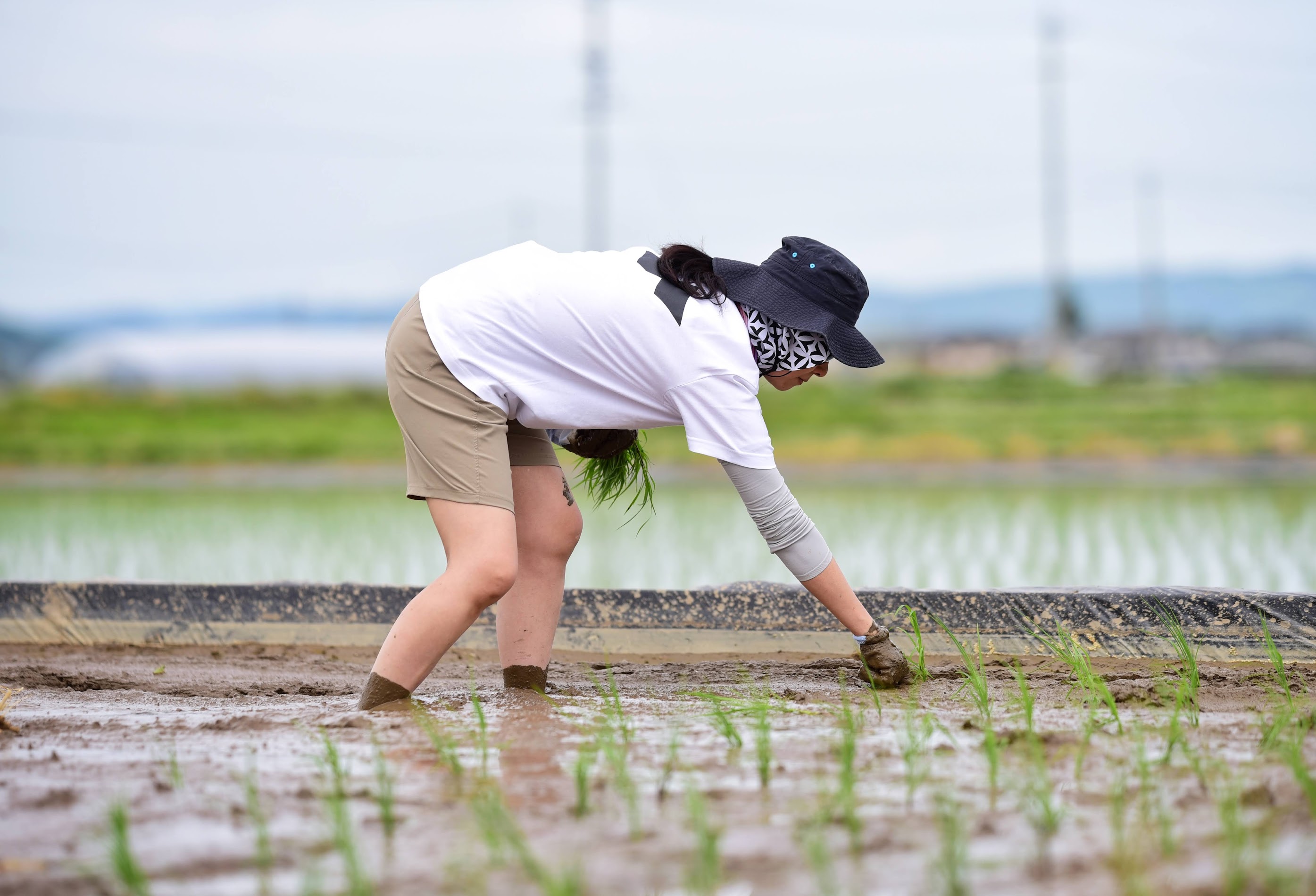
Visitors who have never transplanted rice before usually end up covered in mud–not just their hands and feet but all the way to their waist. But there’s plenty of water to wash it off once the field is planted! The wisdom of the farming community is everywhere. And Kitsukura Sake Brewing, who go from growing sake rice to making sake here in Usuda, also sink deep roots into the area alongside their visitors.
Usuda water supply
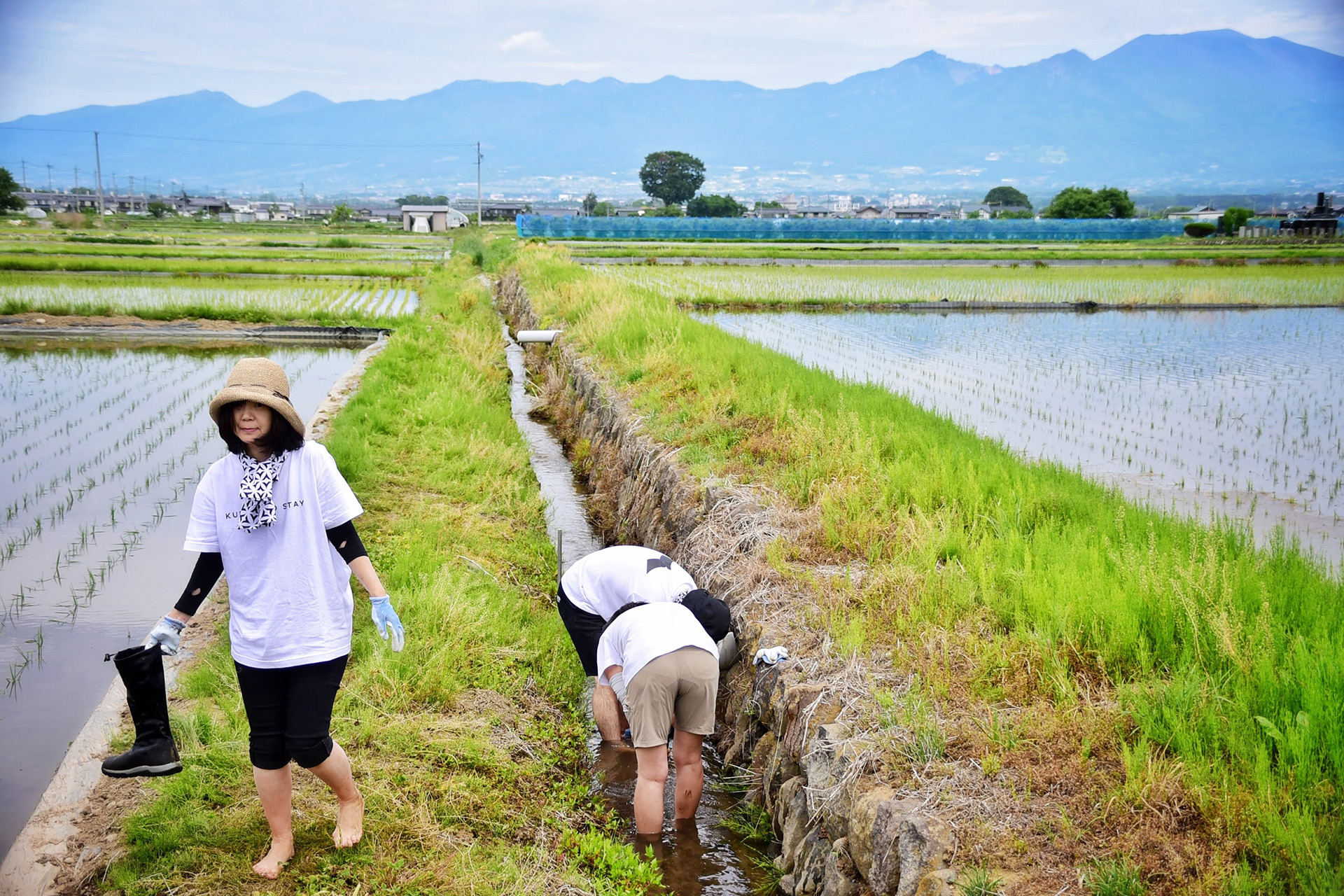
The abundant water that pours into Kitsukura Sake Brewing’s rice fields comes from the Usuda water supply, one of several in the Sakudaira area. Dating back to the Heian Period (794–1185), no effort was spared to create these supply channels in order to irrigate the fertile rice fields found to the south of Saku City with water diverted from the flood-prone Chikuma River. Major works carried out over 9 years from 1949–1958 as part of thePrefectural Sakudaira Irrigation Drainage Project merged the sluice gates for the Usuda, Nozawa, Shiroshita and Hiraka water supplies into a single diversion weir, stabilizing the water supply. The diversion weir takes in a maximum of 8 tons of water per second, which passes through a tunnel to the area below Inariyama. Sediment settles as the water runs, and ends up in a grit chamber built for clarification. After the water has been clarified, it runs through another purpose-built tunnel under Inariyama Park on its way to the left weir of the Chikuma River, which supplies Nozawa, Usuda and Shiroshita, and is transported underneath the river by siphon to supply the right weir, which serves Hiraka, feats of civil engineering which guarantee a stable water supply.
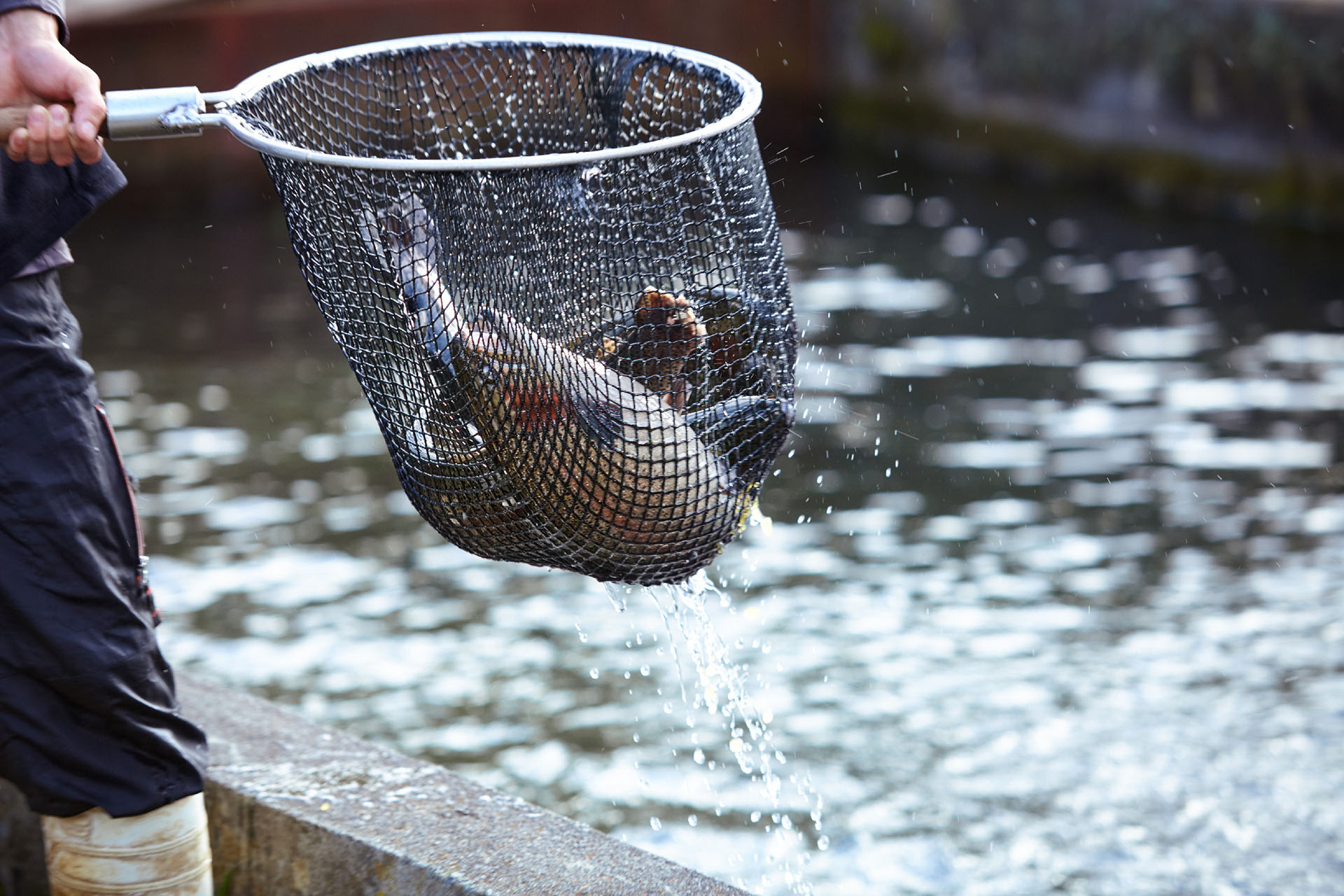
Development of both farmland and irrigation channels continued in the mid-1960s to mid-1970s, ensuring that every part of Usuda, Shiroshita, Nozawa and Hiraka was fully and efficiently irrigated and contributing to a surge in productivity for rice farming in the south Saku area. And these efforts have paid off in the form of a lifeline not only for growing high-quality rice, but also for developing the farming Saku specialty Shinshu carp alongside rainbow trout and Shinshu salmon, and sustaining agriculture throughout the area.
Today's problems, tomorrow's sake
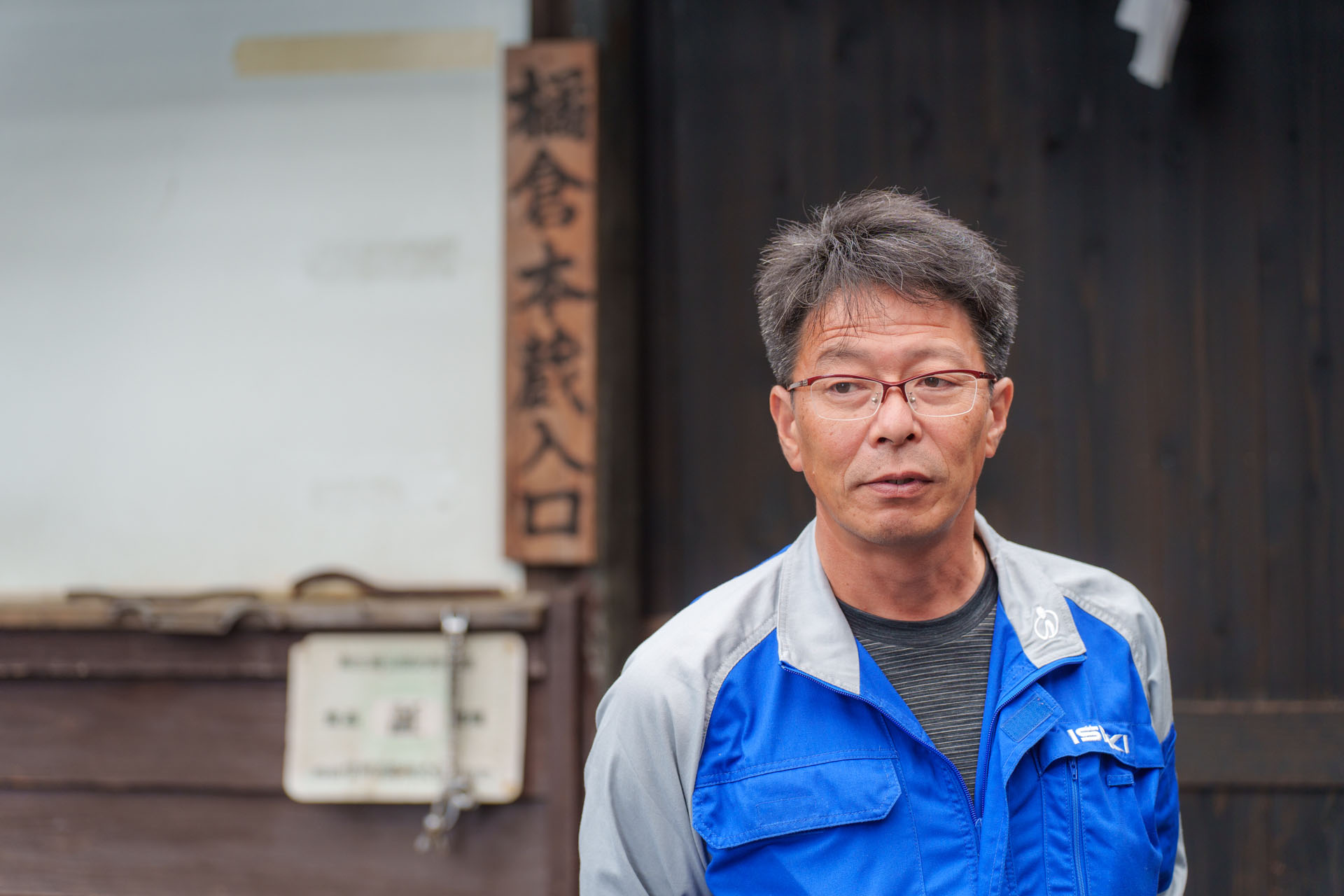
Akinori is still young, but the fact that he owns a large area under cultivation makes him think about what he can do to safeguard the future. He doubts his children will want to carry on the farming business, which means the family legacy may stop with him. “It would be great if the Sake Rice Group and breweries would carry on my way of thinking, my actions and rice farming, but...” He’s keenly aware that the Sake Rice Group itself is aging too, with the oldest member in 2023 being 88 years old. The members are incredibly active for their age, but looking at people who can contribute to the group for the next 20 or 30 years Akinori can see that there will problems. And if there's no rice, then breweries simply can't make sake. So it’s important to tackle the issues of aging in the farming population and the lack of new entrants to take over businesses.
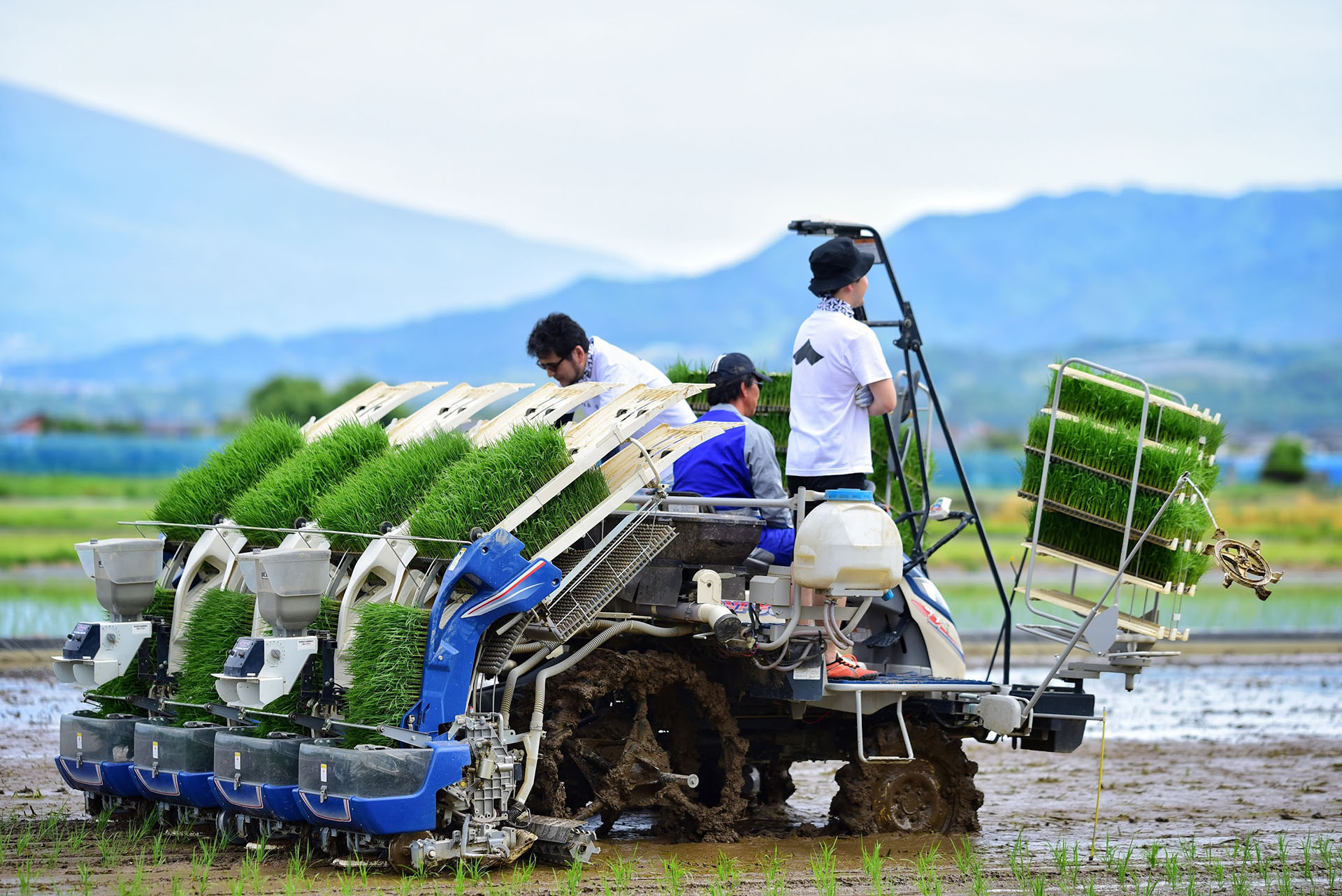
“If there’s not enough rice, it should be easy enough to increase the number of fields. Lots of people are giving up farming, and they often want someone else to use their rice fields. But it's hard to get more people to work in the fields, and if you increase the area you just increase your responsibility. The problems just keep coming. If we don't start an agricultural corporation so that we can carry on farming, and take action on the premise that we will produce enough rice by ourselves, things could get difficult. We might have to do that in order to deal with the problems facing us,” says Tyler from Kitsukura, fully aware of the risks they face. Using their local ties and experience to communicate their appreciation for sake and the value of making it, as well as the importance of agriculture, Tyler and Akinori remain united in their efforts to hand these on to the next generation.

Kikuhide jumai
This sake aims to get back to the essence of sake itself, using lovingly grown rice and emphasizing its characteristics so as to draw out a maximum of umami. Transparent and mellow on the nose, it has refreshing mouthfeel and just the right level of sweetness. A lighter body and classic junmai character make this a standout standard sake. A touch of richness ends in fresh acidity and mild bitterness to give a well-defined finish.
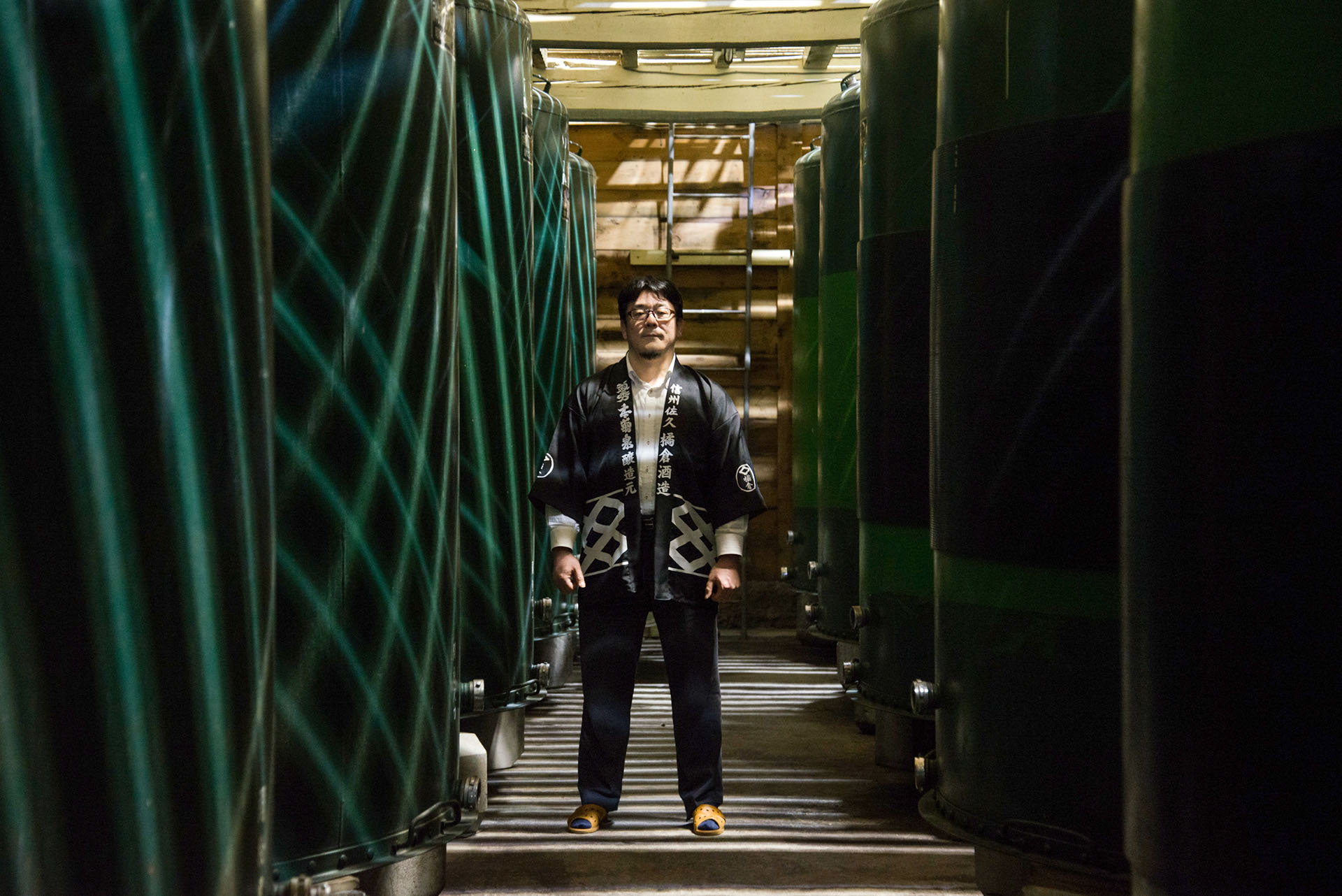

Kitsukura Sake Brewery
Since the Late 17th Century…
Sake Is a Gift from Nature.
Beautiful Sake from Beautiful Saku
Since our foundation in 1696, we have been creating sake for over 300 years, succeeding our ancestor's aspirations and techniques, and preserving their traditions. Our ancestors are said to trace back to the Tachibana family in the Heian era (the late 8th to late 12th centuries). Our brewery name comes from the Chinese-derived pronunciation of “Tachibana,” added to “kura,” which means brewery. We aim to make sake that honors our Saku roots, and celebrates people, nature, and history. In order to meet the needs of the times, we apply the same dedication when making our amazake drinks, soba shochu, and cooking wines. Sake is a gift from nature. We value serving people through brewing.
653-2 Usuda, Saku City, Nagano Prefecture
TEL:0267-82-2006
rewery tour : Available with a reservation